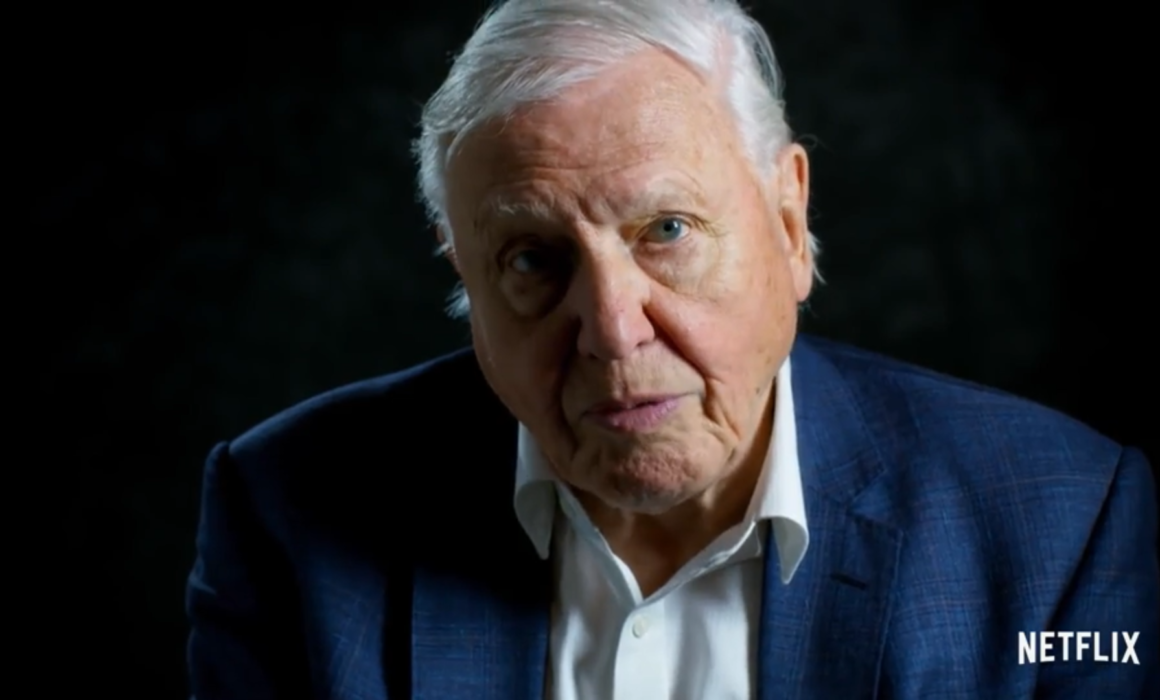Life on our Planet
Have you watched Sir David Attenborough’s “A Life on Our Planet” yet?
If not, you may want to stop reading this post and go and watch it. Feel free to read on, consider yourself warned for spoilers!
Yesterday felt the right day to watch this for me. I’m studying advanced clinical practice at university, and listened to a podcast where a doctor talked about the importance of air quality for healthy lungs. She urged people to plant trees in their gardens and have house plants, to soak up carbon and therefore reduce chronic lung conditions. Fascinated, I listened and thought about how vital the natural world was, that this small scale action could make such a difference to someone’s quality of life. And thought about how sad it was that most illness is caused by pollution or diet or modern lifestyle.
I’d been watching the previous Netflix series Sir David made with my 5-year-old, and on noticing that this film had a PG rating due to animal death, remarked to my husband that it seemed odd that the other series had a U rating, especially given that my penguin-loving son required a lot of cuddles after an (admittedly brutal) scene of penguin vs killer whale. But this film is quite something else; it isn’t about nature, and by extension those deaths that happen to animals as part of the natural food chain. No, this film is about the natural world being ripped apart and destroyed by humans. And it is all the more harrowing to watch.
Mr HCWasteFree and I sat in almost total silence throughout. In part of course, because who would interrupt Sir David? What it must be to live a life where almost everything you say is important. But also because what can you say, when watching this awful tale unfold? The facts are jaw-dropping. Just 4% of mammals on Earth are wild. The rest are humans and our farm animals. The amount of wild land which we have taken in order to farm on an industrial scale is astonishing. The anger and sadness felt at watching what must have been a centuries-old tree being felled in order to plant oil palm; watching an orang-utan clinging to a lone, branchless tree. The hopelessness of seeing vast stretches of dead coral. This isn’t new information to a lot of us, but seeing it on the screen, and at one point, seeing Sir David’s usually unflappable face filled with all the emotion that I was feeling, it was quite something else entirely. It is an incredible, important piece of film making, which would change the mind of the strongest climate change denier (ok, maybe not Trump).
But, definitely most sobering of all, was the projections of what will happen if we don’t change. And these weren’t remote, hardly even real predictions. These were things that would happen in 2030, 2040, 2050. We will live to see these things happen if we do nothing. And we are hurtling towards a mass-extinction event.
However, it would not be the film it is, without offered solutions. Let’s not demonise farming- it literally feeds us. There are clever solutions, already in use in the Netherlands, that could enable us to farm the same produce on less land, and therefore allow rewilding of farm land to promote biodiversity. Changing your pensions and bank accounts to those which invest in renewable energy, rather than fossil fuels- not that surprisingly, most investments are still in the things which are killing us- but as consumers we can drive that change. A new way to fish, which, in a real-world example, actually increased yields as well as increasing fish populations. And of course, as we all know, eating a more plant-based diet. On an individual level, there’s a viral clip of Sir David telling us all just don’t waste. Not food, not clothes, not fuel: do not waste. These are things that can be done. Hope is not lost.
Most striking for me though, was the recognition that human lives must be improved in order for us to continue on earth. Earth does not need us. The amazing scenes in Pripyat (the city evacuated after the Chernobyl explosion) prove that. It feels a bit Jurassic Park at that point- life found a way.
Equal access to healthcare and ensuring children, and especially girls, stay in education- proving once again that equal rights benefit us all- are paramount to helping to stop a mass-extinction event. These are factors proven to stabilise population levels- which must happen, in order to minimise our ongoing impact. One line really stuck with me: We can only thrive if everything around us is also thriving.
This may well prove to be the most important piece of film-making of our generation. It might just save the human race. Sir David Attenborough: a title well earned; not just a national treasure. An international treasure.
For more information on action you can take, go here: https://www.wwf.org.uk/how-to-help-nature

